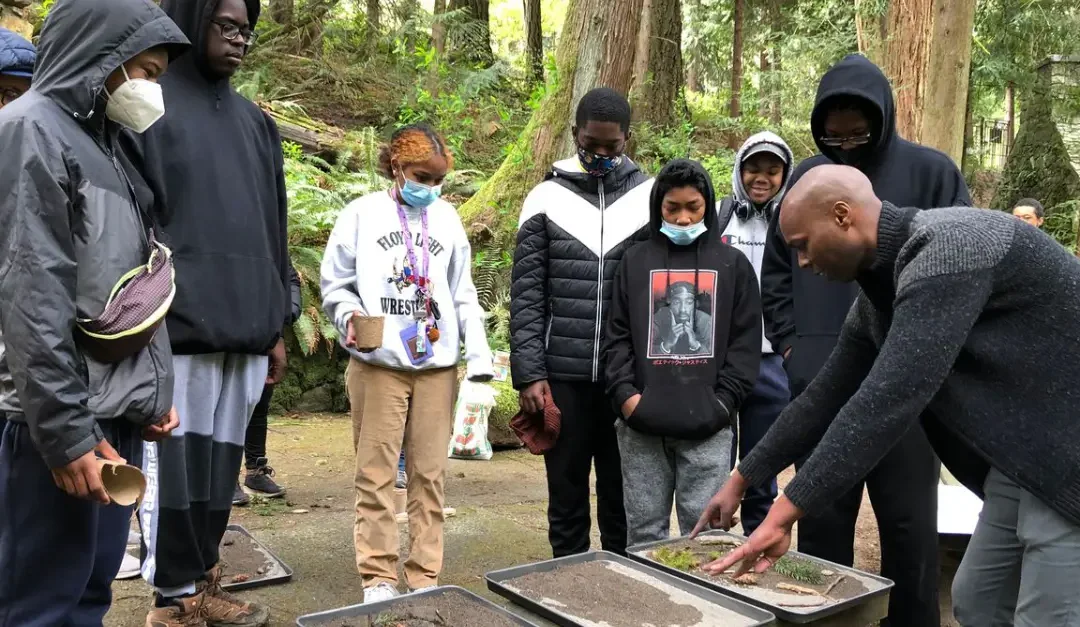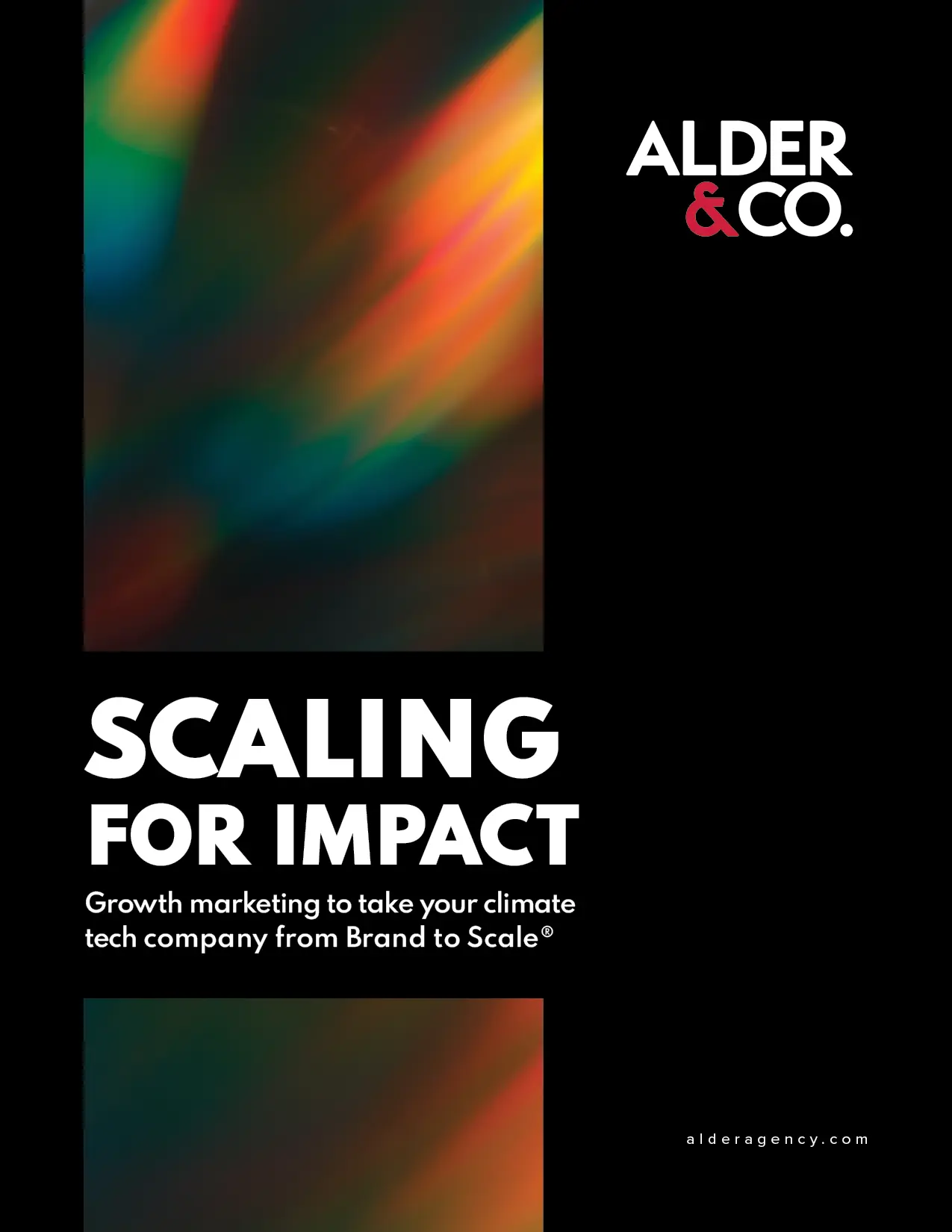Key takeaways and lessons learned during Alder’s Q1 webinar series
Events are a powerful community engagement channel and can be a major source of business growth. On March 7, we enjoyed hosting a webinar on “Climate Tech Events Strategy 2022” with Kristan Kirsh, VP, Global Marketing at Nextracker and Jill Kirkpatrick, Senior Manager of Events at Greentown Labs, who are experts in event marketing. We discussed what factors play into your event planning for this year.
Without question, the past two years have been extremely difficult for event planners. COVID wreaked havoc on the events industry – decimating meetings, incentives, and conferences. And even virtual and hybrid events enjoyed mixed success. For climate tech companies that rely on events, rethinking your post-COVID event strategy is necessary.
Matching an event strategy to your needs
Because an event plan may vary based on your budget, industry, and target audience, it makes sense to determine what the primary objective is. The objective may then make a difference in your approach. Below are some common event objectives:
• Increased sales
• Establishing & growing relationships
• Brand development & awareness
• Increased lead generation
Want to learn more? Check out our entire webinar here.
So, if you’re looking to plan an event, how do you choose the best objective and approach that is right for your company?
To help get you started, here are 5 of the best practices we discussed in our webinar:
1. Start by developing a robust project/event plan from the outset
An event plan defines how an event will be executed. It addresses all the components of an event, such as the start and end dates, goals, budget, venue, marketing, attendees, etc. When forming a project plan, consider the following questions:
• How will an event support your business and marketing goals?
• What value are you bringing to your event attendees?
• How will you measure your event success and ROI?
Include insight-driven success metrics for your goals
Are you a B2B climate tech startup that wants to increase your sales pipeline? Or are you a B2C climate tech startup needing capital partnerships, media partnerships and employees? Both scenarios will require different approaches. Incorporating measurable, key performance indicators (KPIs) into your plan will help you measure your event success and whether your goals are realistic.
Have a backup plan and budget accordingly
In case of cancelations, emergencies, or spikes in COVID cases, it is essential to build that into your budget. For example, event technologies can be expensive if you transition from in-person to virtual. If you think your company may not be able to follow through on attending an industry show, know their cancelation policy. These contingency plans can be lifesavers.
2. Make sure to have a brief with your team before the event
This meeting’s purpose will be to go over your project plan and outline how you will achieve your company goals. Whatever your goals may be, make sure that everyone on the event team aligns with those goals and executes those goals. Have your plan and timeline set and let everyone know their responsibilities.
This meeting is an excellent opportunity to align your sales team. Often, sales and marketing don’t see eye to eye, and it is essential to acknowledge that your marketing goals may differ from your sales goals. A lack of communication can significantly affect your event’s potential ROI. For example, if your primary goal at an event is to increase your sales pipeline, let your sales team know ahead of time what the show floor looks like, and ensure your sales meetings are all set up and tracked accordingly.
3. Build meaningful relationships with your event organizers and trade organizations
Your event organizers and trade organizations are your partners for every show. Getting to know event organizers and trade organizations personally will help you see the event policy and landscape, but it will also pave a path for you to ask for potential favors and requests. For example, suppose you can’t attend an event for any reason. In that case, the event organizer you have established a relationship with will feel more inclined to accommodate your needs and waive your cancelation fee.
4. Keep carbon footprint from travel in mind
In the climate space, consider mitigating event attendees’ carbon footprint from travel by working with companies like TripZero and Pachama. They are an excellent resource for event organizers that can calculate your carbon offsets for free. To generate greater goodwill from leads and prospects, make sure your marketing materials – maybe even your business cards (made from recycled paper) – highlight this offset policy. Alternatively, hybrid and virtual events like webinars are here to stay. They are an excellent tool for increasing the inclusivity and equity of event attendance, allowing people to tune in worldwide.
5. For virtual events: Conduct extensive technology checks and walkthroughs
Be sure to conduct multiple technology checks and an extensive tech walkthrough with your team, especially with your speakers. These are crucial to the event’s success – your audience does not want to wait around for a high-level speaker or CEO due to technical issues.
Therefore, choosing the proper event technology for your event is an investment. For high engagement, quality is better than quantity. Event software can also be used as an excellent registration platform that provides robust, results-oriented data analytics. Unfortunately, event software can be expensive, so making space in your budget is necessary for that as well.
Here are our recommendations for event software:
• Hopin – a platform suitable for larger events (up to 100,000 attendees), including webinars, conferences, trade shows and hybrid events. Hopin has a simple, user-friendly backend that is great for first-time event organizers and those with limited coding skills.
• Cvent – an ideal platform for smaller to mid-size organizations. Cvent also offers a solution for virtual, in-person, and hybrid events.
Closing thoughts
If your budget permits, don’t be afraid to leverage every format to maximize your potential ROI: in-person, virtual, and hybrid. COVID acted as a catalyst for the future of event marketing, providing a massive opportunity in the shape of a multi-audience, multiformat events landscape that enabled marketers to increase engagement with their audience at every level of the marketing funnel.
Lastly, remember that developing a successful events strategy is a challenge. Whether your event is virtual, hybrid, or in-person, it is vital that you cover all your bases. This means understanding your audience, your event plan, and ensuring your event team is aligned during every stage of the event.
Watch our recent webinar to learn how to approach events this year.
Watch the full recording here.
About Alder & Co
Alder & Co. is a leading, global strategic brand marketing agency with the mission to drive the adoption of climate technologies until they become universal. Alder partners with forward-facing, innovative climate tech companies who need progressive brand & marketing strategies to drive growth, secure investment and make the impact needed to address our generation’s most urgent crisis – our environment. Find out more: alderagency.com


